Questions in the Queue: What our Deans Might Not Know Yet
David J. Schleich, PhD
Education
At a recent educational leadership conference in New York, one keynoter among 3 that weekend said, “Our faculty and their deans often don’t know what they don’t know, and that is a really big problem in our time.” Robust applause followed her comment. To drill down into this tough question, we may benefit from a few concepts that can help.
Let’s begin 20 years back with the story of McArthur Wheeler. He is infamous for having robbed 2 Pittsburgh banks in broad daylight. On that day he wasn’t wearing a mask – no disguise of any kind, in fact. Police tracked him down around midnight the same day. The surveillance tapes at the bank had led the police to Mr Wheeler. When arrested, Wheeler was taken aback by how fast he had been apprehended. And, as reported in the Pittsburgh Post-Gazette the next day, he could hardly believe his ears when the police assured him that rubbing lemon juice on one’s face did not make it invisible or opaque to videotape cameras. (Fuoco, 1996) As elegantly pointed out by Justin Kruger and David Dunning from Cornell just at the cusp of the new millennium (Kruger & Dunning, 1999) now almost 20 years ago, what was missing then, still is. Sustained leadership training, from nuts and bolts through to visioning and future-making for our middle and senior managers in academia in their whacky busy lives in post-secondary and higher education, can be understood as a version of the lemon juice hypothesis. Kruger and Dunning nail it when they call our attention to a key element of such wrong-headedness: our not knowing what we don’t know. They relate this aphorism to a process called metacognition. (Everson & Tobias, 1998)
Why Metacognition is Critical
To get a handle on this concept of metacognition, Kruger and Dunning provide an example from grammar. They explain that knowledge of grammar is necessary for parsing, that is, for analyzing the interdependent parts of a sentence to discern if it is accurately and even logically written. They indicate that “the same knowledge that underlies the ability to produce correct judgment is also the knowledge that underlies the ability to recognize correct judgment” (p.1122). Thus, before one can decide if a sentence is correctly written, in the sense that its parts work logically and accurately together, one must know what a correctly written sentence looks like.
If we take this idea and apply it to, say, the question of scientific method – so broadly applied to everything from teaching design to assessment, for example – we apply some light to this notion that we can be hobbled in our efforts by not knowing what we don’t know. Whether John Ioannidis was right or not (remember his 2005 “Why Most Published Research Findings Are False”?), there are those who contend that for our faculty to produce correct judgment in their teaching, research, and coaching (ie, most valid content, delivered effectively), they must first be able to recognize what it is they are trying to produce: are we preparing citizens for the productive economy or for some other, less material, purpose? In fact, all kinds of such big-picture questions pop up for our deans and chairs and professors.
Here are a few samples: What place do the classics of literature and philosophy have in the curriculum of the modern college or university? Is the scientific method, with its approach of replicable, controlled experiments, sacrosanct, or did Thomas Kuhn have a point, after all? Can Design Thinking challenge the scientific method used in every discipline, as seems to be manifesting right now in places such as Stanford’s D-School? In natural medicine programs, is parenteral (hyperalimentation) therapy just a slippery slope to allopathic medicine? For what purposes do we encourage literary criticism? Can virtual reality technology replace hands-on clinical pedagogy? What place does tenure have in funded public-sector universities in the 2020s? As educators, can controlled experiments really deal with many layered, complex socio-technical problems like healthcare design and delivery?
Could We Become What We Fight?
There is yet another quandary, manifesting in another difficult question which is woven throughout our educational enterprise. This conundrum can be represented in some ways by the ancient symbol of the ouroboros, the tail-devouring serpent or dragon. The idea is that the serpent’s behavior represents the cyclical natural life, including the inevitable fusion of opposites. Put differently, if we are not careful, prescient, aware, and skilled as education professionals, will we become what we fight? Whatever shape our educational process takes, from mathematical, archetypal, or lemniscate shapes, right on to that of the mythical, ancient snake itself, devouring its own tail, we need to be sharply aware of what we’re trying to do and take aim at accepting that there is so much we don’t know that we don’t know.
One scholar friend of mine put it this way, and my corrugated brow has remained wrinkled ever since. She introduced the ouroboros into our discussion and asked our group at a recent conference in New York, “If we begin to consume our own identity and second-guess our actions all the time as educators, which presume some purpose for human life on the planet, will we do harm to the continuity among past, present and future?” She wasn’t talking at all about the plastic, malleable structures of our academic institutions [eg, what about tenure? what about the civilizing power of literature, history, philosophy, and science as blended studies over time?] She circled us back to our identity as educators being dependent on constantly bursting through the boundaries of what we know about how to be teachers, but inviting in new ideas and skills dependent on acknowledging that there is so much we don’t even see yet.
When, like the bank thief naively assuming that juicing his mug with lemon juice would obfuscate images of his countenance on a security camera, we go headlong forward in thinking that older principles about the university’s purposes (eg, Trow’s “mass education” compared to Newman’s ideas about the role of the university in civil society) are to be inevitably supplanted, what we don’t know about that factors into this tough, tough question. Certitude about the cultural utility of the university – which has been whacked by less money from the governing bodies of our society – is accompanied by the bailers in the boat who wonder, who’s and what’s next?
In the natural medicine sector of higher education, there are other alarming questions that encourage our teachers to think about what it is that we don’t know that we don’t know. Grammatically, the preceding sentence has a clause – “that we don’t know” – which is the object of the former verb, “know.” Hard to contain that notion across the days and weeks and months of an academic year.
From the natural medicine perspective, our philosophical underpinnings – ie, those that distinguish us absolutely from the Cartesian reductionism (in which, as Mitchell points out, “a chief goal of science has been a reductionist explanation of all phenomena in terms of fundamental physics”) (Mitchell, ix, 2009) – are assimilated by the explosion of contrary imperatives. Modern allopathic medicine (also known as biomedicine) is epistemologically derived not only from the 17th century work of Rene Descartes, but also from the discipline of biology, in that both characterize the very essence of contemporary allopathic medicine. The result has often been the equivalent of what Friar Laurence declares in II-VI of Romeo and Juliet: “like fire and powder, which, as they kiss, consume.” That is, as Mitchell further elaborates, “in spite of its great successes explaining the very large and very small, fundamental physicals, and more generally, scientific reductionism, have been notably mute in explaining the complex phenomena closest to our human-scale concerns.” (Mitchell, x, 2009) Such concerns, as far as natural medicine students are concerned, absolutely include “the intricacies and adaptive nature of living organisms and the diseases that threaten them.” (Mitchell, x, 2009) The most important words in this argument are “complex” and “adaptive.” Contemporary faculty, more than ever in recent history, may want to explore this complex adaptation process more closely. Alas, because of the insecurities of post-secondary and higher education these days, academic leaders and teachers may not want to take close looks at what is out there that they don’t know enough about, or to look at themselves in the middle of the tsunami.
Leadership Challenges
In this regard, and continuing with this notion of metacognition, Kruger and Dunning insist that some individuals “do not possess the degree of metacognitive skills necessary for accurate self-assessment that their more accomplished counterparts possess” (p.1122). This translates into our educational planners not knowing what they don’t know and contributing in small or large part to the erosion of the coherent, traditional demarcations of the various discipline specialties and professions they support, while trying with conviction to fulfill their charge to build a better nation for a brave new globally interconnected world.
In some state legislatures, political leaders want to know how education and training investment translates into jobs and the advancement of a productive economy. What does an expert in some corner of 20th century American literature, for example, say in response? And, when millennials bemoan relevance, do we have the backs of our teachers about what are the best forms of educational content, delivery, and assessment? They may not recognize what they need to know to manifest and hold this responsibility in their day-to-day work. Kruger and Dunning would say that we are exposed by our circumstances and choices to “miscalibrated views of ability and metacognitive skills” (p.1123) in these arenas.
This big-picture challenge manifests in a number of places in post-secondary and higher education in our time, such as in the search for good instructional designers, content specialists with an interest in research, and higher education leaders or managers for whom teaching and learning are a joy, or for whom career momentum as academic administrators is a priority. So, what kinds of things don’t we know that we don’t know? What does that big picture look like with respect to the continuing need for academic and administrative leadership in our growing sector? Let’s begin with the shortage of instructional designers.
Instructional Designers with Training
Paxton (2016) drills down into the asymmetry between needing excellent instructional designers who can guide our faculty in new learning approaches (online, blended, flipped classrooms) in the fast encroaching universe of digital transformation in education and finding some who would embrace our mission. It’s not only about qualifications; it’s about purpose. He reports, “CNN estimates that the instructional design profession will grow 28.3 percent over the next ten years.” (Paxton, 2016) Cautioning that only a fraction of current graduates in this discipline are drawn to higher education, Paxton notes, “The very best are often lured into more lucrative positions in corporate learning.” (Paxton, 2016)
Even so, the challenge isn’t only supply and demand or about finding designers who are attracted to what we’re trying to accomplish in our corner of the higher education marketplace. What also faces our naturopathic educators is that the learning management systems we are choosing today are themselves transforming at a remarkable clip in the massively complex ed-tech landscape. What’s more, our educational leaders know that millennials yearn for experiential learning that does not bind them to seats in rooms 30+ hours a week. Harkening back to the idea that we sometimes don’t know what we don’t know, Paxton reminds us that even among those of our faculty with acumen in instructional design, we have in play now “a generation of instructional designers who were not trained to leverage predictive analytics for optimized design.” (Paxton, 2016)
Related to the concern about the buffeting of our identity in the proliferating, integrative medicine marketplace, are the alarm bells about how important “big data” is to navigating our position in the intensely competitive field of medical education? There are so many inputs which our teachers want to access, understand, and assimilate; alas our resources are so thin. As reported by Kwapien (2015), there are “techniques and theories drawn from mathematics, statistics, computer science, data mining, visualization, predictive analytics, data warehousing and many more.” Thus, the pressure, she adds, “to deal with real problems, real data and a real industry client [can’t] be provided by any university course.” (Kwapien, 2015)
Academic Leadership Skills & Experience
And what of academic leadership in our sector? Gonzalez (2011) cites Hearn (2006), who suggests that “teaching involves leadership, and leadership involves teaching, so there should be a way to prepare faculty members to become academic administrators.” (Gonzalez, 2011, p.220) She adds, “Many candidates for high-level administrative positions are functionally qualified, but lack leadership abilities.” Her mentor, Clark Kerr, for many years president of the University of California, promoted the idea that higher education institutions made “little effort to develop the pool.” (Gonzalez, 2011, p.220) Accompanying the idea that more leadership/management training is critical to the growth of a leadership pool is the notion that “it is particularly important that deans be visionary” (p.221) and that “non-positional leaders, that is, people who have shown leadership qualities without holding administrative posts, should be considered for the job as well, provided that they have the personal skills necessary to operate in an executive capacity” (p.221).
We call the academic leaders of our naturopathic programs “deans,” although in the larger public-sector universities they would be chairs of a program rather than deans of a division that invariably includes numerous programs. We do the same with our idea of a provost. Even so, this is not only a question of scale; it is also a question of institutional culture. In our culture there is a small pool of qualified candidates for academic leadership roles. This goes along with the very few academic leadership posts available. Increasingly relevant to the challenge, however, is, as David Mead-Fox suggests, that “college and university leaders have felt increasing pressure to devote time and energy to matters more and more removed from the core educational and research enterprise.” (Fox, 2009) Such matters include time-consuming tasks such as fundraising, successful liaising with outside constituencies, and legal and regulatory obligations. As well, there are challenges and barriers to motivating faculty and junior managers to consider more senior academic leadership roles. DeZure et al (2014) have summarized these factors that shifting to a leadership career path or intention entails:
- it takes you from the things you love (research, teaching, students)
- the difficulty of leading now (funding, regulatory and compliance culture)
- redefined relationships (supervising former peers)
- a lack of understanding (of the role, its rewards, challenges, required skills)
- expectations for dress and behavior (autonomy, cultural divide)
- family and colleagues (workload, work-life balance)
Conclusion
There is also the historical rift between the “business priorities” of the universities or colleges in which our programs exist, and the “educational/professional formation priorities” of those same institutions. In addition to the notion that “administrative work must serve the purposes” lacking intellectual merit, there also comes from the guild-side more than infrequent Eeyore-like admonitions that “academic leadership is in the end ‘not provided by people in formal managerial roles.’” The demotivating description undermines the enthusiasm of potential new leaders to take on the role. It proves to be far less an issue in our naturopathic medical education network than in the more volatile public sector. And there is the more tangible concern that “competition between universities will become characteristic of the sector, driving attempts by management to emphasise academics’ loyalty to the institution rather than [to] their scholarly disciplines and networks.” (Morgan, 2012) Morgan and his colleagues speak about “accidental leaders” and about this predicament in higher education getting much worse before it softens, if ever.
In such a climate of uncertainty about encouraging and rewarding academic leadership, whether it is in curriculum design, departmental administration, or research development, creating the best possible world for the academic sectors of our programs is vital.
References:
Chi, M. T., Glaser, R., & Rees, E. (1982). Expertise in problem solving. In: Sternberg, R. J. (Ed.) Advances in the Psychology of Human Intelligence. Hillsdale, NJ: Lawrence Erlbaum Associates Inc; pp 17-76.
DeZure, D., Shaw, A., & Rojewski, J. (2014). Cultivating the Next Generation of Academic Leaders: Implications for Administrators and Faculty. Change Magazine. Available at: http://pm169-29.dialip.mich.net/sites/default/files/Cultivating%20the%20Next%20Generation%20of%20Academic%20Leaders.pdf. Accessed August 26, 2016.
Everson, H. T., & Tobias, S. (1998). The ability to estimate knowledge and performance in college: A metacognitive analysis. Instr Sci, 26 (1-2), 65-79.
Fuoco, M. A. (1996, March 21). Trial and Error: They Had Larceny in their Hearts, but Little in their Heads. Pittsburgh Post-Gazette, p. D1.
Gonzalez, C. (2011). Clark Kerr’s University of California: Leadership, Diversity, and Planning in Higher Education. Piscataway, NJ: Transaction Publishers.
Ioannidis, J. P. (2005). Why most published research findings are false. PLoS Med, 2 (8), e124.
Kruger, J., & Dunning, D. (1999). Unskilled and unaware of it: how difficulties in recognizing one’s own incompetence lead to inflated self-assessments. J Pers Soc Psychol, 77 (6), 1121-1134.
Kwapien, A. (2015). Data Science Education is Rising, But Still Doesn’t Cover the Shortage of Data Professionals. Agata Kwapien – BI Blog | Data Visualization & Analytics Blog | datapine.
Mead-Fox, D. (April 19, 2009). Tackling higher education’s leadership scarcity. University World News. Available at: http://www.universityworldnews.com/article.php?story=20090416193526437&query=mead-fox. Accessed August 22, 2016.
Mead-Fox, D. (2010). It’s Getting Harder to Find Superior Leaders: To Compete for the Best Talent, Colleges Must Rethink how they Recruit Executives Externally and Internally. Chron High Educ, 56, 17, D25-D26.
Mitchell, M. (2009). Complexity: A Guided Tour. New York, NY: Oxford University Press.
Morgan, J. (April 5, 2012). No shortage of managers but academics bemoan a ‘leadership lacuna.’ Times Higher Education. Available at: https://www.timeshighereducation.com/news/no-shortage-of-managers-but-academics-bemoan-a-leadership-lacuna/419543.article. Accessed September 11, 2016.
Paxton, R. (June 7, 2016). The Quest for Great Instructional Designers. Inside Higher Ed. Available at: https://www.insidehighered.com/advice/2016/06/07/troublesome-shortage-instructional-designers-essay. Accessed September 9, 2016.
Image Copyright: <a href=’https://www.123rf.com/profile_andreypopov’>andreypopov / 123RF Stock Photo</a>
 David J. Schleich, PhD, is president and CEO of the National University of Natural Medicine (NUNM), former president of Truestar Health, and former CEO and president of CCNM, where he served from 1996 to 2003. Previous posts have included appointments as vice president academic of Niagara College, and administrative and teaching positions at St. Lawrence College, Swinburne University (Australia) and the University of Alberta. His academic credentials have been earned from the University of Western Ontario (BA), the University of Alberta (MA), Queen’s University (BEd), and the University of Toronto (PhD).
David J. Schleich, PhD, is president and CEO of the National University of Natural Medicine (NUNM), former president of Truestar Health, and former CEO and president of CCNM, where he served from 1996 to 2003. Previous posts have included appointments as vice president academic of Niagara College, and administrative and teaching positions at St. Lawrence College, Swinburne University (Australia) and the University of Alberta. His academic credentials have been earned from the University of Western Ontario (BA), the University of Alberta (MA), Queen’s University (BEd), and the University of Toronto (PhD).









